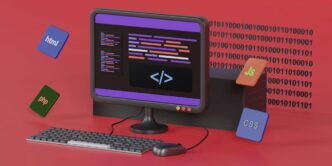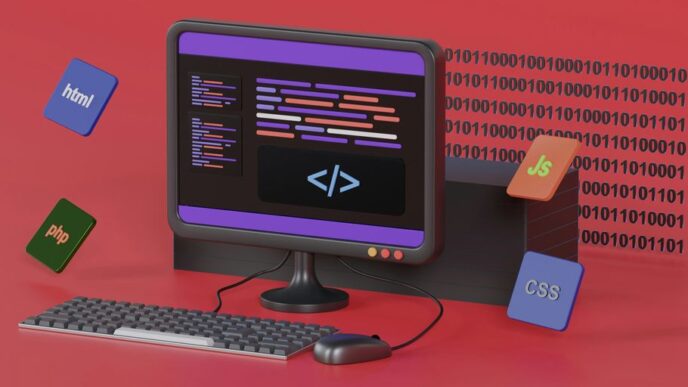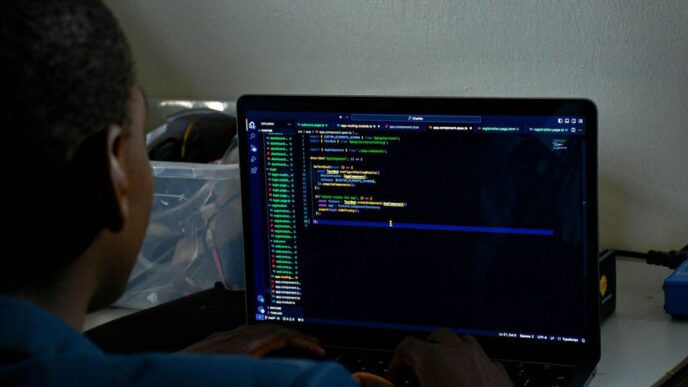Have you ever wondered what a programmer does all day? Are you curious about why programming is such an essential field in today’s technology-driven world? Well, get ready to clarify the role of a programmer! In this blog post, we’ll explore the sways and outs of programming and explain why it matters more now than ever. Whether you have technical expertise or are just starting to dip your toes into the world of rendering, this composition will give precious perceptivity to this fascinating profession.
Who’s a programmer?
Programmers are the people who write the code that enables computer software to serve. They turn the program designs created by software inventors and masterminds into instructions that the computer can follow, and they also remedy and troubleshoot laws when necessary. Programmers make the software work.
Most programmers have at least a bachelor’s degree in computer science or an affiliated field, although some employers will hire campaigners with an associate’s degree or indeed just a high school diploma if they have the right chops. Numerous programmers also have experience working in specific programming languages as well as knowledge of multiple platforms(such as Windows, Mac, Linux, etc.).
What does a programmer do?
A programmer is responsible for writing laws that will produce software programs. They work closely with software inventors to produce operations that meet the requirements of druggies. In addition to writing laws, programmers also test and remedy programs to ensure they’re free of crimes.
Programmers must have a strong understanding of computer science fundamentals, including data structures and algorithms. They must be able to write laws that are effective and scalable. Also, they must be suitable to work with colorful programming languages and tools.
Different types of programming languages
There are a variety of programming languages that programmers can use to write laws. The most popular programming language is Java. Other popular languages include Python, C, and JavaScript. Each language has its own syntax, or set of rules, that mandate how the law should be written. Programmers must be familiar with the syntax of the language they’re using to write laws that will be effective.
Different programming languages are designed for different purposes. For illustration, Java is frequently used for large-scale systems because it’s scalable and effective. Python is occasionally used for data analysis because of its numerous libraries that offer important data analysis tools. C is frequently used for game development because it offers good performance and plate capabilities.
Programmers may specialize in one or more programming languages. They may also be complete in multiple languages and be suitable to write law in any language they choose. Stylish programmers are those who have a strong understanding of computer wisdom generalities and are able to apply them to any language they use.
The Benefits of Hiring a Programmer
There are numerous benefits to hiring a programmer. They are just too many.
1. They can help you save time and money.
2. They can automate tasks that would otherwise be homemade and time-consuming.
3. They can ameliorate the quality of your product or service by making it more effective and stoner-friendly.
4. They can help you reach new requests or target cults with their specialized moxie.
5. They can provide precious perceptivity and feedback during the development process.
Common Misconceptions About Programming
There are a lot of misconceptions about programming and programmers out there. Let’s clear some effects up.
First, programming isn’t just about the law. While the law is a big part of it, programming is more about solving problems. The law is just one tool that programmers use to solve problems.
Alternately, programming isn’t just for computer nerds. Anyone can learn to program. Learning to program can be a great way to boost your career, no matter what field you are in.
Third, programming isn’t easy. It takes time, practice, and fidelity to become a good programmer. So if you are looking for a quick and easy way to make plutocrats, programming isn’t the way to go.
Fourth, programmers aren’t perfect. We all make miscalculations. The key is to learn from our miscalculations and keep trying until we get it right.
Programming isn’t boring. Yes, there are times when it can be grueling or frustrating. But eventually, it’s satisfying and indeed delightful once you get the hang of it.
Tips for Getting a Successful Programmer
1. Pursue a degree or instrument in computer programming.
2. Consider taking coursework in affiliated fields, similar to mathematics and computer wisdom.
3. Stay up-to-date on the latest programming technologies and trends.
4. Join a professional association, similar to the Association for Computing Machinery( ACM).
5. Attend conferences and networking events related to your field.
6. Be active on social media platforms similar to GitHub and Stack Overflow.
7. Write blog posts or papers about your area of moxie.
8. Speak at affinity events to share your knowledge with others.
Conclusion
Programmers are essential for the success of any business or association. They’re the ones who produce, maintain, and update the software programs that keep a company running smoothly. Without them, businesses wouldn’t be able to stay competitive in the digital age. It’s important to have an understanding of what they do and why their work matters if you want your business or association to succeed in today’s increasingly technological world.













